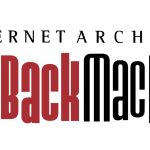As the number of IT products and their demand keeps growing, the number of product development companies and the scale of their work keeps on rising. Companies today manage large scale IT products and software and social media sites where millions of people are constantly connected and active. Such IT products have to be continuously developed and managed, on a large number of computing resources.
Managing a lot of computers, drives, and cloud systems while developing products means all of them need continuous tracking and updation to maximize efficiency and minimize errors. The process of executing this is known as configuration management and the tool used for the same is called a configuration management tool. Chef, developed by the software company of the same name, is one such tool and is one of the most widely used in IT companies today. It is written purely in Ruby (programming language), and works efficiently to streamline the task of configuring and maintaining a company’s product development resources.
With a Compound Annual Growth Rate (CAGR) of 24.7%, DevOps tools are rapidly gaining traction worldwide, and therefore, it becomes essential to understand the role of a popular software like Chef, or maybe even learn it through a Chef course and open new career opportunities.
Platforms Supported
At the time of its creation, Chef was made for managing Linux, but later expanded its abilities to Microsoft Windows. As far as the supported platforms goes, there are different platforms for Chef Client and Chef Server.
Client supported platforms:
- AIX
- RHEL/CentOS
- FreeBSD
- OS X
- Solaris
- Microsoft Windows
- Ubuntu
- Arch Linux
- Debian
- Fedora
Chef server supported platforms:
- RHEL/CentOS
- Oracle Linux
- Oracle Cloud
- Ubuntu
Chef Customers
The DevOps market is predicted to grow to over $10 billion by 2023 (PRNewswire), and Chef is already counted as among the three market leaders in configuration management. Following are some of the companies that use Chef:
- Bloomberg
- GE Digital
- HP Enterprise
- IBM
- Yahoo
- Zumba
How Chef Works
The traditional methods of managing configuration are not feasible to apply for large scale product development. Chef does this by having a powerful way of converting infrastructure into code that streamlines the configuration management tasks. Chef can work in a client-server fashion or standalone mode. In case of the latter, it is also known as Chef-solo. Chef can run on the systems in the premises, or on cloud or in a hybrid arrangement.
In case of the client-server system, it consists of a Chef server which holds all the important information. The Chef client runs on nodes and is responsible for running the respective node in the desired state. Nodes are machines, such as office computers. The user creates ‘recipes’ on his ‘workstation’ that describe how Chef manages server applications and utilities. The term recipes is also responsible for giving Chef its name, changing it from the original ‘marionette’.
Sets of recipes are put together in what is called a ‘cookbook’. According to the official website of Chef, Cookbooks are ‘fundamental units of configuration and policy distribution. A cookbook defines a scenario and contains everything that is required to support that scenario.’
The client periodically pulls information from the server to check for any changes or updates, and if found, implements it to its respective node. This way, the entirety of all computing resources is always tracked and uniform.
There are other components as well, such as the library, which allows arbitrary Ruby code to be included in the cookbook; or the templates, which are Embedded Ruby templates that are used to generate static files dynamically. ‘Knife’ is used to interact with nodes or in other words transfer cookbooks to nodes.
A Chef development kit includes everything you need to get started with Chef.
Competition
Although Chef is highly popular for its measurable improvement in speed and efficiency of product development as well as the quality of it, it does have some competitors:
- Ansible
- Puppet
- RedHat
- Saltstack
- AWS Cloud formation
There are others that can add to this list but these are the major ones. Despite having stiff competition, Chef has emerged as one of the most preferred configuration management tools in recent times.
Career Opportunities for Chef Experts
Searching for jobs as a Chef expert on employment websites returns a significant number of results having quality salaries. Being one of the founders of the DevOps movement and a reliable industry leader, the road for Chef as a software looks promising, which in turn means any expert of DevOps and especially Chef will find appreciable quantities and qualities of jobs available. If you are planning to be a Chef master, it is a great idea, and a Chef certification can start your journey in that direction.













